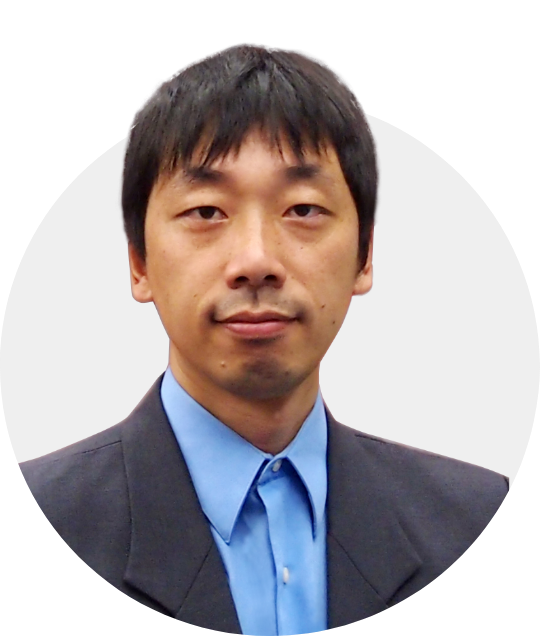
YUAN Haidong 袁海東
Associate Professor
TEL: 852 - 3943 9479
Room 207, William M.W. Mong Engineering Building
Dr. Haidong Yuan received his B.E. in Electronic Engineering from Tsinghua University, Beijing, 2001. He got his M.S. in Engineering Science in 2002 and Ph.D. in Applied Mathematics in 2006, both from Harvard University. He then did his postdoctoral work at Harvard University and Massachusetts Institute of Technology. From August 2012 to August 2014, he worked as an assistant professor at the department of Applied Mathematics, the Hong Kong Polytechnic University. He joined the Department of Mechanical and Automation Engineering, the Chinese University of Hong Kong as an assistant professor in September, 2014.
Research Interests
- Dynamical System and Control Theory
- Modeling and Control of Systems at Micro, Nano and Mesoscopic Scale
- Quantum Information and Quantum Computing
- Complex Systems and Networks
Projects
- Quantum Metrology Matrix
- Quantum Parameter Estimation with General Dynamics
- Sequential Feedback Scheme Outperforms the Parallel Scheme for Hamiltonian Parameter Estimation
- Optimal Feedback Scheme and Universal Time Scaling for Hamiltonian Parameter Estimation
2024/2025
MAEG4070 Engineering Optimization
MAEG5110 Quantum Control and Quantum Information
MAEG5725 Control & Industrial Automation
MAEG5110 Quantum Control and Quantum Information
MAEG5725 Control & Industrial Automation
2023/2024
MAEG4050 Modern Control Systems Analysis and Design
MAEG4070 Engineering Optimization
MAEG5725 Control and Industrial Automation
MAEG4070 Engineering Optimization
MAEG5725 Control and Industrial Automation
Journal Papers (in the recent five years)
- Haidong Yuan, Chi-Hang Fred Fung, Quantum parameter estimation with general dynamics, to appear in npj: Quantum information.
- Haidong Yuan, Sequential feedback scheme outperforms the parallel scheme for Hamiltonian parameter estimation, Physical Review Letters 117, 160801 (2016).
- Chengjie Zhang, Sixia Yu, Qing Chen, Haidong Yuan, and C.H. Oh, Evaluation of entanglement measures by a single observable, Physical Review A,94, 042325 (2016).
- Jing Liu, Haidong Yuan, ”Valid lower bound for all estimators in quantum parameter estimation, New Journal of Physics, 18, 093009 (2016).
- S. S. Köcher, T. Heydenreich, Y. Zhang, G. N. M. Reddy, S. Caldarelli, H. Yuan and S. J. Glaser, Time-optimal excitation of maximum quantum coherence: Physical limits and pulse sequences, Journal of Chemical Physics 144, 164103 (2016).
- Xiaoxu Wang, Chengjie Zhang, Qing Chen, Sixia Yu, Haidong Yuan, and C. H. Oh, Hierarchy of multipartite nonlocality in the nonsignaling scenario, Physical Review A 94, 022110 (2016).
- Haidong Yuan, Robert Zeier, Nikolas Pomplun, Steffen J. Glaser, and Navin Khaneja, Time-optimal polarization transfer from an electron spin to a nuclear spin, Physical Review A 92,053414 (2015).
- Chengjie Zhang, Sixia Yu, Qing Chen, Haidong Yuan, C H Lai and C H Oh, Complete condition for nonzero quantum correlation in continuous variable systems, New Journal of Physics 17, 093007 (2015).
- Haidong Yuan, Chi-Hang Fred Fung, Optimal feedback scheme and universal time scaling for Hamiltonian parameter estimation, Physical Review Letters 115, 110401, (2015).
- Haidong Yuan, Van D. M. Koroleva and Navin Khaneja, Reduced coupling with global pulses in quantum registers, New Journal of Physics 16, 105013(2014).
- Haidong Yuan, Daxiu Wei,Yajuan Zhang, Steffen Glaser and Navin Khaneja, “Efficient synthesis of quantum gates on indirectly coupled spins”, Phys. Rev. A 89, 042315(2014).
- Haidong Yuan, “Reachable set of open quantum dynamics for a single spin in Markovian environment”, Automatica 49, pp. 955-959, (2013).
- Haidong Yuan, “Reachable set of operators on controlled open quantum systems in a Markovian environment”, System and Control Letters, Vol 61, Issue 11, pp 1085-1088 (2012).
- Haidong Yuan, Christiane Koch, Peter Salamon, David Tannor, “Controllability on relaxation free subspaces: On the relationship between adiabatic population transfer and optimal control”, Phys. Rev. A 85, 033417 (2012).
- Haidong Yuan, Navin Khaneja, “Efficient synthesize of quantum gates on a three spin system with triangle topology”, Phys. Rev. A 84, 062301 (2011).